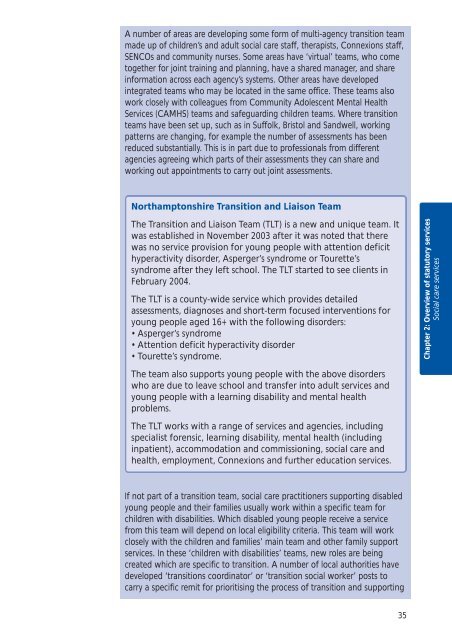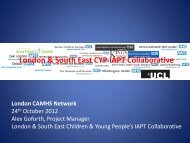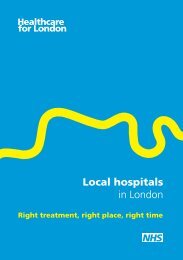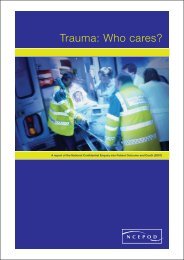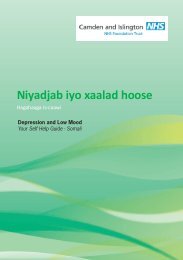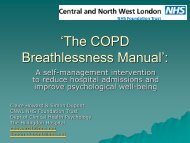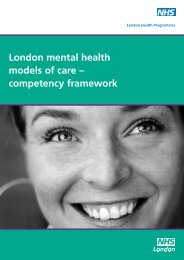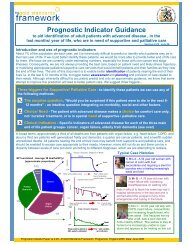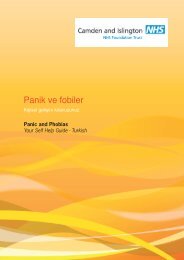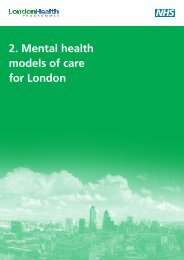A Transition Guide for All Services - Transition Information Network
A Transition Guide for All Services - Transition Information Network
A Transition Guide for All Services - Transition Information Network
- No tags were found...
You also want an ePaper? Increase the reach of your titles
YUMPU automatically turns print PDFs into web optimized ePapers that Google loves.
A number of areas are developing some <strong>for</strong>m of multi-agency transition teammade up of children’s and adult social care staff, therapists, Connexions staff,SENCOs and community nurses. Some areas have ‘virtual’ teams, who cometogether <strong>for</strong> joint training and planning, have a shared manager, and sharein<strong>for</strong>mation across each agency’s systems. Other areas have developedintegrated teams who may be located in the same office. These teams alsowork closely with colleagues from Community Adolescent Mental Health<strong>Services</strong> (CAMHS) teams and safeguarding children teams. Where transitionteams have been set up, such as in Suffolk, Bristol and Sandwell, workingpatterns are changing, <strong>for</strong> example the number of assessments has beenreduced substantially. This is in part due to professionals from differentagencies agreeing which parts of their assessments they can share andworking out appointments to carry out joint assessments.Northamptonshire <strong>Transition</strong> and Liaison TeamThe <strong>Transition</strong> and Liaison Team (TLT) is a new and unique team. Itwas established in November 2003 after it was noted that therewas no service provision <strong>for</strong> young people with attention deficithyperactivity disorder, Asperger’s syndrome or Tourette’ssyndrome after they left school. The TLT started to see clients inFebruary 2004.The TLT is a county-wide service which provides detailedassessments, diagnoses and short-term focused interventions <strong>for</strong>young people aged 16+ with the following disorders:• Asperger’s syndrome• Attention deficit hyperactivity disorder• Tourette’s syndrome.Chapter 2: Overview of statutory servicesSocial care servicesThe team also supports young people with the above disorderswho are due to leave school and transfer into adult services andyoung people with a learning disability and mental healthproblems.The TLT works with a range of services and agencies, includingspecialist <strong>for</strong>ensic, learning disability, mental health (includinginpatient), accommodation and commissioning, social care andhealth, employment, Connexions and further education services.If not part of a transition team, social care practitioners supporting disabledyoung people and their families usually work within a specific team <strong>for</strong>children with disabilities. Which disabled young people receive a servicefrom this team will depend on local eligibility criteria. This team will workclosely with the children and families’ main team and other family supportservices. In these ‘children with disabilities’ teams, new roles are beingcreated which are specific to transition. A number of local authorities havedeveloped ‘transitions coordinator’ or ‘transition social worker’ posts tocarry a specific remit <strong>for</strong> prioritising the process of transition and supporting35


